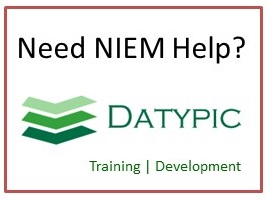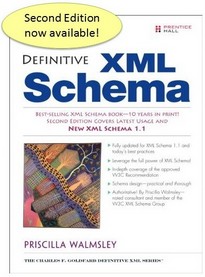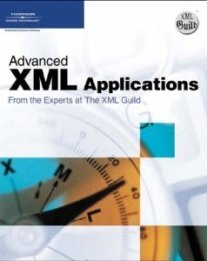gml:TemporalDatum
A gml:TemporalDatum defines the origin of a Temporal Reference System. This type omits the "anchorDefinition" and "realizationEpoch" elements and adds the "origin" element with the dateTime type.
Element information
Namespace: http://www.opengis.net/gml/3.2
Schema document: external/ogc/gml/3.2.1/datums.xsd
Type: gml:TemporalDatumType
Properties: Global, Qualified
Content
- Sequence [1..1]
- gml:metaDataProperty [0..*] deprecated
- gml:description [0..1] The value of this property is a text description of the object. gml:description uses gml:StringOrRefType as its content model, so it may contain a simple text string content, or carry a reference to an external description. The use of gml:description to reference an external description has been deprecated and replaced by the gml:descriptionReference property.
- gml:descriptionReference [0..1] The value of this property is a remote text description of the object. The xlink:href attribute of the gml:descriptionReference property references the external description.
- gml:identifier [1..1] Often, a special identifier is assigned to an object by the maintaining authority with the intention that it is used in references to the object For such cases, the codeSpace shall be provided. That identifier is usually unique either globally or within an application domain. gml:identifier is a pre-defined property for such identifiers.
- gml:name [0..*] The gml:name property provides a label or identifier for the object, commonly a descriptive name. An object may have several names, typically assigned by different authorities. gml:name uses the gml:CodeType content model. The authority for a name is indicated by the value of its (optional) codeSpace attribute. The name may or may not be unique, as determined by the rules of the organization responsible for the codeSpace. In common usage there will be one name per authority, so a processing application may select the name from its preferred codeSpace.
- gml:remarks [0..1]
- gml:domainOfValidity [0..1] The gml:domainOfValidity property implements an association role to an EX_Extent object as encoded in ISO/TS 19139, either referencing or containing the definition of that extent.
- gml:scope [1..*] The gml:scope property provides a description of the usage, or limitations of usage, for which this CRS-related object is valid. If unknown, enter "not known".
- gml:origin [1..1] gml:origin is the date and time origin of this temporal datum.
from type gml:TemporalDatumBaseType
Attributes
| Name | Occ | Type | Description | Notes |
|---|---|---|---|---|
| gml:id | [1..1] | xsd:ID | from type gml:TemporalDatumBaseType |
Substitution hierarchy
- gml:AbstractObject
- can be substituted with gml:AbstractGML
- can be substituted with gml:Definition
- can be substituted with gml:AbstractDatum
- can be substituted with gml:TemporalDatum
- can be substituted with gml:AbstractDatum
- can be substituted with gml:Definition
- can be substituted with gml:AbstractGML
Sample instance
<gml:TemporalDatum gml:id="ID"> <gml:metaDataProperty> <gml:GenericMetaData>Any text, intermingled with: <!--any element--> </gml:GenericMetaData> </gml:metaDataProperty> <gml:description>string</gml:description> <gml:descriptionReference/> <gml:identifier codeSpace="http://www.example.com/">string</gml:identifier> <gml:name>string</gml:name> <gml:remarks>string</gml:remarks> <gml:domainOfValidity> <gmd:EX_Extent> <gmd:description>... </gmd:description> <gmd:geographicElement>... </gmd:geographicElement> <gmd:temporalElement>... </gmd:temporalElement> <gmd:verticalElement>... </gmd:verticalElement> </gmd:EX_Extent> </gml:domainOfValidity> <gml:scope>string</gml:scope> <gml:origin>2000-01-01T12:00:00</gml:origin> </gml:TemporalDatum>



